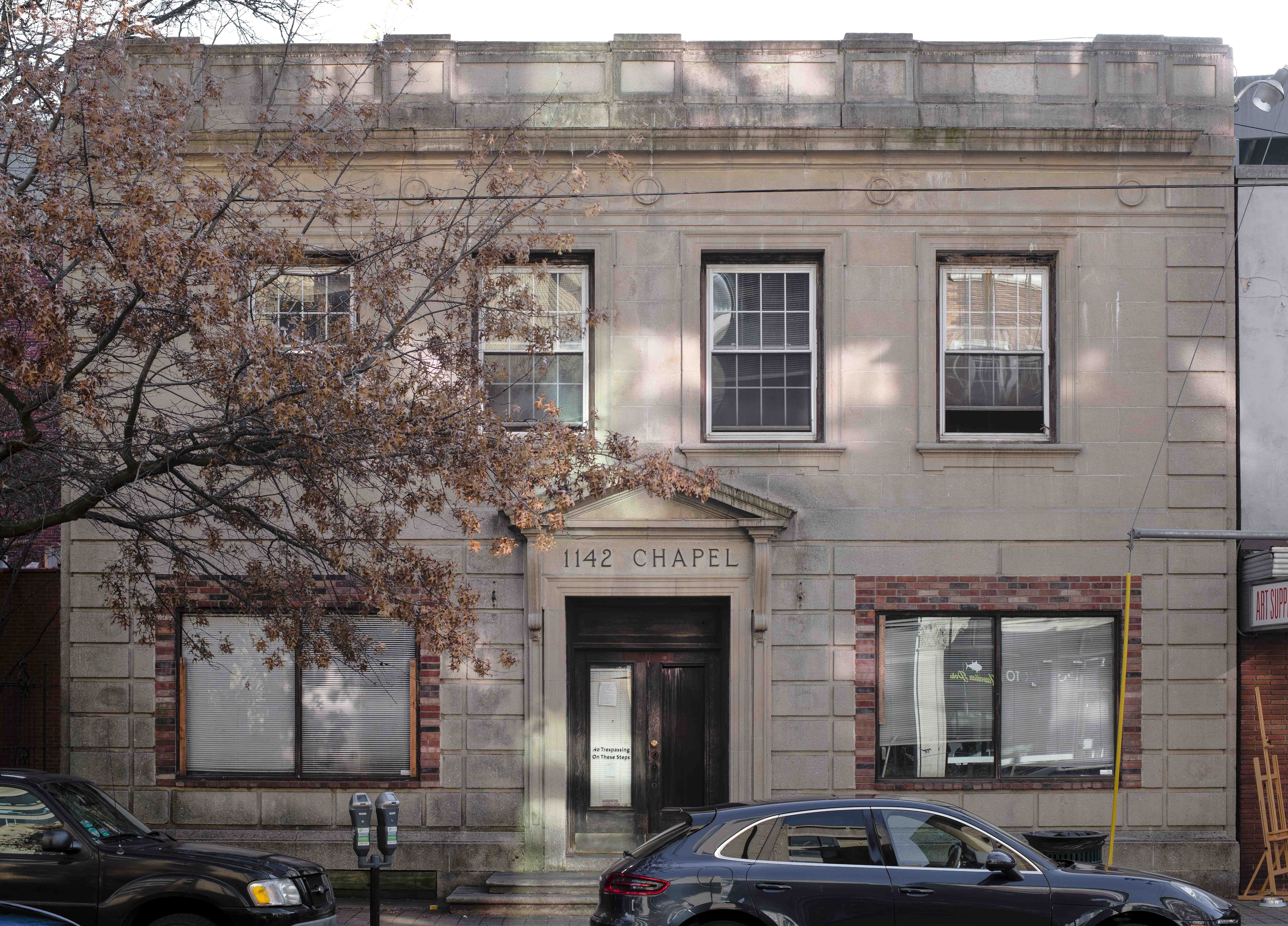
Yiming Zhang
Burned out and opened to the elements by a 1992 fatal fire — the last in a series of four — the building at 1142 Chapel St. is set to be leveled after an order from the City of New Haven.
The two-story, retail-office structure is now owned by Yale after the University bought the property as a part of a larger $3.8 million deal with Elm City property firm Pike International on June 4. The space has, at different times, housed a pawn shop, a jewelry store and a design facility, but has sat unused since its last fire 27 years ago. After an Oct. 1 inspection by the city’s Building Department, Building Official Jim Turcio ordered the university to demolish the building, according to an Oct. 22 notice sent to Yale.
“We have been working with the City of New Haven Building Department, which required that the building be demolished because it is unsafe,” University spokeswoman Karen Peart told the News. “We are now in the process of securing a demolition permit. There are no current plans for the site.”
The building was built in 1900 and hosted at least three separate businesses in downtown New Haven until four separate fires rendered it useless. The structure has a stone facade and outer brick walls on the other three sides. Property records show that in addition to the first-floor retail space and the second-floor office, there is an unused unfinished basement. According to a report commissioned by the University in April and carried out by structural engineering firm Spiegel Zamecnik & Shah, Inc., the building was afflicted with a water-damaged interior structure, a partially collapsed roof and a buckling wall.
The building has seen its fair share of tragedy in a relatively short history. The address was devastated in a series of fires starting in the 1970s and going until the final fire in 1992. That fire started after improper use of an electrical component in the illegal unit of the sole residential tenant at the address, Fred Gomes. New Haven firefighter Tom Kelly suffered a traumatic brain injury after falling through an uncovered 30-foot air shaft that was a part of a second-story addition while responding to the 1992 fire. Another firefighter, Juan Melendez, injured his back when he fell from the rear fire escape that had been held up by wire, rope, cinder blocks and wood.
Less than three years prior to the fatal fire, the Building Department had sent a letter to then-owner Louis DeSimone ordering him to obtain a building permit for the construction of the second-floor addition, which had already been built without the necessary documentation.
DeSimone and his wife Jean later pleaded no contest to 48 counts of fire and building code violations and were sentenced to two years of probation and 400 hours of community service, according to a 2016 New Haven Register article. New Haven Fire Department protocols also changed to protect the safety of individual firefighters due to the incident at 1142 Chapel St.
The DeSimone family owned the building for another 24 years, even after the death of DeSimone in 2008. But the structure stayed vacant and the family took no steps to repair the damage left by the fire despite a request for repair from the Building Department in 2002 and a standing order to demolish submitted two days after the fire in 1992.
Three years ago, Orange real estate agent Fred Messore finally brokered a deal between the DeSimone family and Pike International for $2.3 million in a deal that included 1142 Chapel St., 166 York St. and the parking lot at 169 Park St. When the property was sold, Turcio pulled the demolition order, so that Pike could evaluate plans for renovation instead of demolition. At the time, Pike thought it would try to put a market in the retail space, according to Turcio. The plans did not come to fruition, however, after Pike’s financing fell through, he said. Instead, Pike only removed an old oil tank from the basement and left the rest of the structure to rot for another three years. Over the summer, it flipped the two buildings to Yale for $3.8 million.
Pike owner Shmully Hecht declined to comment on the property or its sale, citing company policy “not to comment on its dealings with Yale University.”
After publication of the story, Hecht argued that Pike’s financing did not fall through for the property and that Turcio had no knowledge of Pike International financing.
Looking forward, Yale plans to meet with the Building Department in December to obtain the necessary demolition permit and will likely start demolition the same day, according to Turcio. Due to the building’s proximity to Book Trader Cafe and Hull’s Art Supply, the demolition will have to be done by hand and Turcio estimated it will take about six weeks.
According to Turcio, the University plans to clean up the lot after leveling the structure to complement the patio at Book Trader Cafe. Long term, the University has a lot of flexibility with the lot, said Chapel West Business Manager Brian McGrath, because it owns 166 York, the York Street Garage and numerous other properties in the neighborhood, including the School of Art down the block and the School of Architecture across the street.
“[We want Yale to] try to preserve the businesses that are there and try to add some more. That’s what we really like to see,” McGrath told the News in an interview. “[The building] a big annoyance to the entire block. Everyone hates it, and everyone’s glad that Yale bought it.”
According to city records, the property had an appraised value of $442,600 last year.
Clarification, Nov. 25: This article has been updated to include a comment from Hecht regarding the property’s financing.
Jose Davila IV | jose.davilaiv@yale.edu







